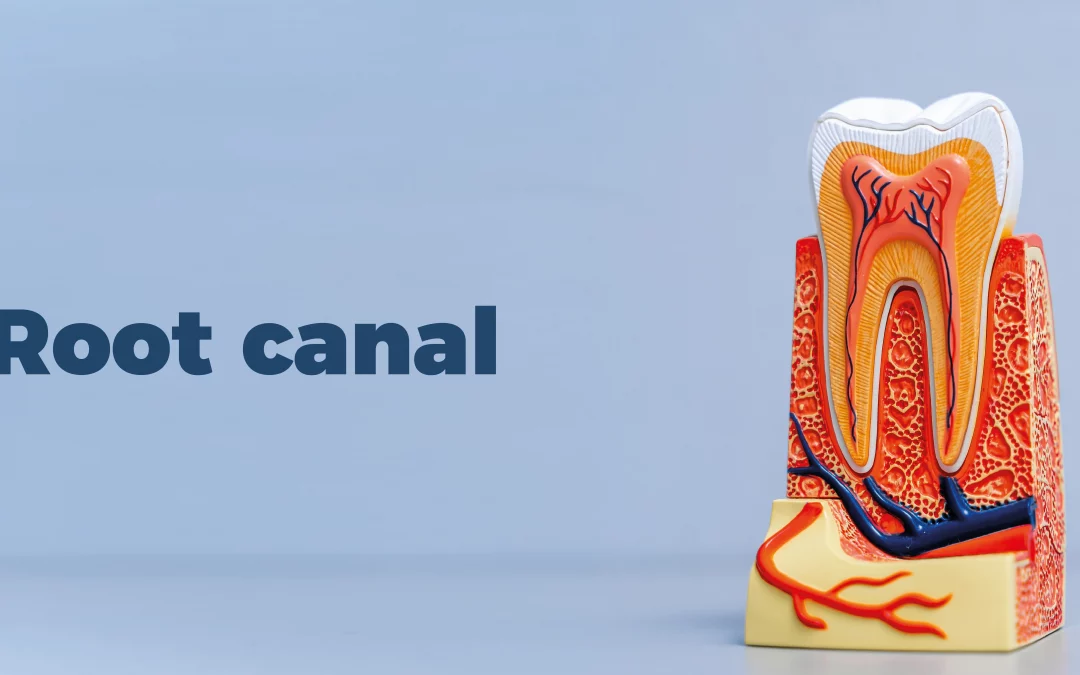ROOT CANAL
What is a root canal?
A root canal is one of the most common dental procedures performed, well over 14 million every year. This simple treatment can save your natural teeth and prevent the need of dental implants or bridges.
At the center of your tooth is pulp. Pulp is a collection of blood vessels that helps to build the surrounding tooth. Infection of the pulp can be caused by trauma to the tooth, deep decay, cracks and chips, or repeated dental procedures. Symptoms of the infection can be identified as visible injury or swelling of the tooth, sensitivity to temperature or pain in the tooth and gums.
If you experience any of these symptoms, your dentist will most likely recommend non-surgical treatment to eliminate the diseased pulp. This injured pulp is removed and the root canal system is thoroughly cleaned and sealed. This therapy usually involves local anesthesia and may be completed in one or more visits depending on the treatment required. Success for this type of treatment occurs in about 90% of cases. If your tooth is not amenable to endodontic treatment or the chance of success is unfavorable, you will be informed at the time of consultation or when a complication becomes evident during or after treatment. We use local anesthesia to eliminate discomfort. In addition, we will provide nitrous oxide analgesia, if indicated. You will be able to drive home after your treatment, and you probably will be comfortable returning to your normal routine.
Root canal treatment
What is a root canal treatment?
Inside the tooth is a hollow centre containing ‘pulp’. Pulp is a sensitive tissue made up of blood vessels and nerves that provides oxygen, nutrients and feeling to the tooth.
The pulp is found all through the tooth and the space where the pulp sits in the root is called the root canal.
Root canal treatment is a dental procedure that replaces damaged or infected pulp in the tooth’s root canal, with a filling.
Why might I need a root canal treatment?
If you have damaged or infected pulp in one or more of the roots of your teeth, or an abscess has developed, you may need a root canal treatment. This damage or infection may have been caused by untreated dental decay, decay beneath a filling, tooth damage, tooth grinding (bruxism ) or gum disease.
Please note: Root canal treatment will not be offered if the tooth is loose or if only a small amount of tooth remains as the treatment is not likely to be successful in these cases.
What should I expect with root canal treatment?
This procedure may need to be completed over several visits.
The infected tooth.
The dental professional will make an opening in the top of the tooth.
The diseased pulp and bacteria are flushed out with disinfectant and the root canals are cleaned with special instruments.
The pulp chamber and root canals are filled and sealed.
The tooth opening is restored with a filling.
After a root canal treatment, a tooth becomes brittle. It can be strengthened (to stop it from splitting while eating) with a cap or ‘crown’.
What are the alternatives to a root canal treatment?
Remove the tooth – Removing the tooth will leave a gap that may need to be replaced by an artificial tooth.
Leave the tooth untreated – If left untreated an infection may occur and can spread to the jaw. Pus can build up and cause pain. Cysts may also develop and need further treatment.
Are there risks involved in a root canal treatment?
Like any medical procedure, a root canal treatment poses some risk and, on rare occasions, there may be complications. These complications may result in a tooth needing additional treatment, referral to a specialist* or may result in the tooth needing to be removed.
Please note: In most cases root canal treatment is very successful. Speak with us if you have any concerns about the treatment.






